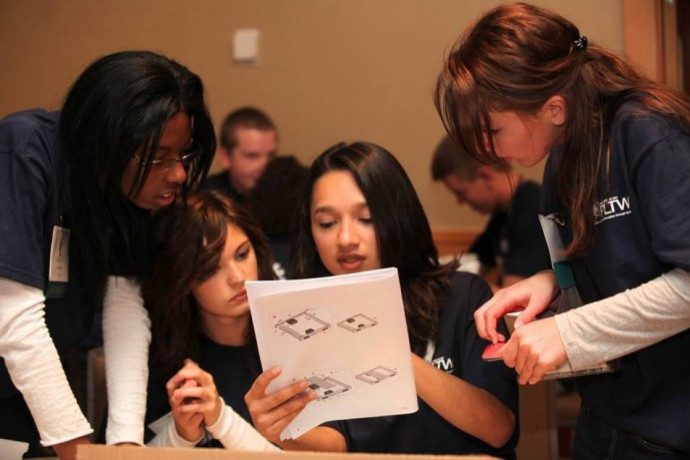Chinese high school students outshine Western peers: Study

According to a newly published report by the Programme for International Student Assessment (PISA) conducted worldwide by the Paris-based OECD, Chinese students in Shanghai (a partner city in the education assessment program) outshone their peers in the OECD countries as well as other partner economies in the assessment for all three areas tested - namely reading skills, mathematics and sciences.
The research, which included two-hour tests of a half million 15-year-old students in more than 70 economies, showed the strong lead that students in that age group from Shanghai have taken over their counterparts in countries such as the USA, UK and Australia.
With mean scores of 556, 600 and 575 respectively in reading, math and sciences, Shanghai emerged at the top of all three lists. In mathematics and science in particular, over one-quarter of students from the city demonstrated advanced mathematical thinking skills to solve complex problems, compared to an OECD average of just 3 percent, according to the report.
Rigorous standards, traditionally greater expectations and aspiration, longer study hours and specialist teachers are widely believed to be some of the factors that have led to the steady ascendancy of Asian nations in academics, especially at the high school level. This seems to be borne out one more time by the PISA 2009 results, where at least three out of the top 5 positions in every assessment area have been clinched by countries in Asia.
Other countries that demonstrated consistent skills in all three areas and ranked among the top 5 were Singapore, New Zealand and Finland.
In what has caused some degree of alarm, both US and UK lag considerably behind the highest performing nations in terms of scores attained. In mathematics in particular, mean scores of American students were statistically significantly below the OECD average, while in science they just about managed to scale the average. Speaking to Wall Street Journal, Stuart Kerachsky, deputy commissioner at the National Center for Education Statistics, said, We're in the middle of the pack, that's not where we want to be.
The results could serve as a shrill wake-up call to the United States, especially when one takes into account the impact of improving the scores. Another recent OECD study with Stanford University projected that if the U.S. boosted its average PISA scores by 25 points over the next 20 years, there would be a gain of $41 trillion in the U.S. economy over the lifetime of the generation born in 2010.
© Copyright IBTimes 2024. All rights reserved.





















